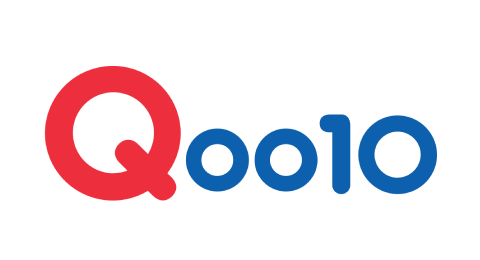E-Commerce Crisis in South Korea: Qoo10's Payment Delays Spark Outrage
July 30, 2024, 11:29 am
In the bustling world of e-commerce, a storm brews. South Korea's digital marketplace is reeling from a significant crisis. Qoo10, a Singapore-based e-commerce platform, is at the center of this tempest. Payment delays have left vendors in the lurch, igniting frustration and financial strain. The fallout is palpable, with small businesses struggling to stay afloat.
The trouble began in early July. TMON and WeMakePrice, two South Korean platforms under Qoo10's umbrella, faced a severe glitch in their payment systems. This hiccup led to a cascade of unpaid bills. Vendors, once confident in their partnerships, now find themselves in a precarious position. The financial implications are staggering. As of mid-July, WeMakePrice owed nearly 500 vendors a staggering 36.9 billion won, approximately $26.6 million. The clock is ticking, and the pressure is mounting.
As the crisis deepens, companies are severing ties. InterparkTriple, a travel service provider, has already terminated its contracts with TMON and WeMakePrice. The message is clear: trust has eroded. Customers, too, are feeling the heat. Lines form outside the offices of these e-commerce giants as angry consumers demand refunds. The scene is chaotic, a reflection of the turmoil within.
In response to the growing unrest, South Korean authorities have stepped in. An investigation has been launched into the operations of TMON and WeMakePrice. The government is monitoring the situation closely, aware that the stakes are high. Small businesses are the backbone of the economy, and their survival is critical.
Qoo10's founder, Ku Young-bae, has pledged to take action. He has promised to use his own assets to compensate affected vendors and customers. This commitment is a lifeline for many. The South Korean government is also stepping up, announcing a $400 million support package for small businesses impacted by the payment delays. This financial boost aims to stabilize the situation and restore confidence in the e-commerce sector.
However, the road to recovery will not be easy. The glitch that triggered this crisis was described as a "system error." Such technical failures can undermine trust in digital platforms. Customers and vendors alike are left questioning the reliability of these services. In a world where online shopping is the norm, trust is paramount.
Qoo10's troubles are not isolated. The company, which also operates in Japan, China, Hong Kong, Malaysia, and Indonesia, faces scrutiny on multiple fronts. The ripple effects of this crisis could extend beyond South Korea. Competitors may seize the opportunity to attract disillusioned customers. The e-commerce landscape is unforgiving, and loyalty can shift in an instant.
As the situation unfolds, the impact on small businesses is profound. Many rely on platforms like TMON and WeMakePrice for their livelihoods. Delayed payments can mean the difference between survival and closure. The emotional toll is significant. Vendors are not just numbers; they are individuals with families and dreams. The human element of this crisis cannot be overlooked.
The government’s intervention is a crucial step. Financial support can provide a buffer, but it cannot erase the damage done. Trust must be rebuilt. Qoo10's leadership faces a daunting task. They must address the root causes of the payment delays and implement measures to prevent future occurrences. Transparency will be key. Open communication with vendors and customers can help restore faith in the platform.
In the coming weeks, the focus will be on recovery. Will Qoo10 emerge from this crisis stronger, or will it falter under the weight of its failures? The answer lies in its response. The e-commerce giant must navigate these turbulent waters with care. Every decision will have consequences.
For now, the storm rages on. Vendors and customers are left waiting, hoping for resolution. The digital marketplace is a double-edged sword. It offers convenience but can also bring chaos. As South Korea grapples with this crisis, the lessons learned will resonate far beyond its borders. The future of e-commerce hangs in the balance, and the stakes have never been higher.
In this age of digital commerce, trust is the currency that fuels success. Without it, platforms like Qoo10 risk becoming relics of a bygone era. The clock is ticking, and the world is watching. Will they rise to the occasion, or will they become another cautionary tale in the annals of e-commerce history? Only time will tell.
The trouble began in early July. TMON and WeMakePrice, two South Korean platforms under Qoo10's umbrella, faced a severe glitch in their payment systems. This hiccup led to a cascade of unpaid bills. Vendors, once confident in their partnerships, now find themselves in a precarious position. The financial implications are staggering. As of mid-July, WeMakePrice owed nearly 500 vendors a staggering 36.9 billion won, approximately $26.6 million. The clock is ticking, and the pressure is mounting.
As the crisis deepens, companies are severing ties. InterparkTriple, a travel service provider, has already terminated its contracts with TMON and WeMakePrice. The message is clear: trust has eroded. Customers, too, are feeling the heat. Lines form outside the offices of these e-commerce giants as angry consumers demand refunds. The scene is chaotic, a reflection of the turmoil within.
In response to the growing unrest, South Korean authorities have stepped in. An investigation has been launched into the operations of TMON and WeMakePrice. The government is monitoring the situation closely, aware that the stakes are high. Small businesses are the backbone of the economy, and their survival is critical.
Qoo10's founder, Ku Young-bae, has pledged to take action. He has promised to use his own assets to compensate affected vendors and customers. This commitment is a lifeline for many. The South Korean government is also stepping up, announcing a $400 million support package for small businesses impacted by the payment delays. This financial boost aims to stabilize the situation and restore confidence in the e-commerce sector.
However, the road to recovery will not be easy. The glitch that triggered this crisis was described as a "system error." Such technical failures can undermine trust in digital platforms. Customers and vendors alike are left questioning the reliability of these services. In a world where online shopping is the norm, trust is paramount.
Qoo10's troubles are not isolated. The company, which also operates in Japan, China, Hong Kong, Malaysia, and Indonesia, faces scrutiny on multiple fronts. The ripple effects of this crisis could extend beyond South Korea. Competitors may seize the opportunity to attract disillusioned customers. The e-commerce landscape is unforgiving, and loyalty can shift in an instant.
As the situation unfolds, the impact on small businesses is profound. Many rely on platforms like TMON and WeMakePrice for their livelihoods. Delayed payments can mean the difference between survival and closure. The emotional toll is significant. Vendors are not just numbers; they are individuals with families and dreams. The human element of this crisis cannot be overlooked.
The government’s intervention is a crucial step. Financial support can provide a buffer, but it cannot erase the damage done. Trust must be rebuilt. Qoo10's leadership faces a daunting task. They must address the root causes of the payment delays and implement measures to prevent future occurrences. Transparency will be key. Open communication with vendors and customers can help restore faith in the platform.
In the coming weeks, the focus will be on recovery. Will Qoo10 emerge from this crisis stronger, or will it falter under the weight of its failures? The answer lies in its response. The e-commerce giant must navigate these turbulent waters with care. Every decision will have consequences.
For now, the storm rages on. Vendors and customers are left waiting, hoping for resolution. The digital marketplace is a double-edged sword. It offers convenience but can also bring chaos. As South Korea grapples with this crisis, the lessons learned will resonate far beyond its borders. The future of e-commerce hangs in the balance, and the stakes have never been higher.
In this age of digital commerce, trust is the currency that fuels success. Without it, platforms like Qoo10 risk becoming relics of a bygone era. The clock is ticking, and the world is watching. Will they rise to the occasion, or will they become another cautionary tale in the annals of e-commerce history? Only time will tell.

